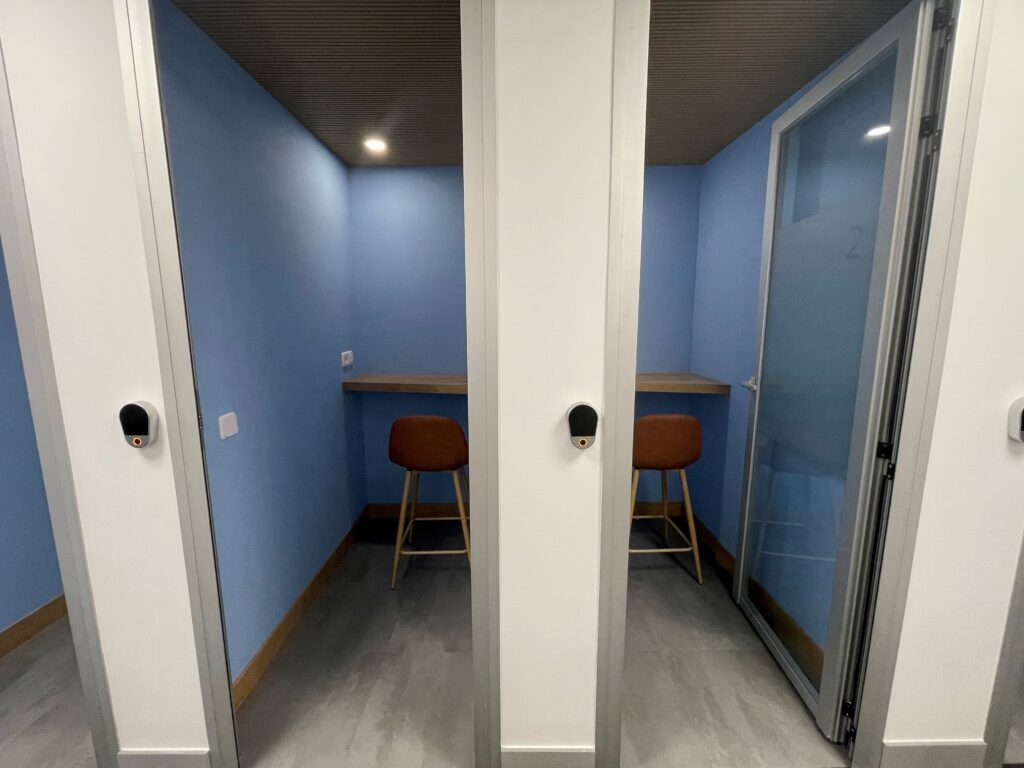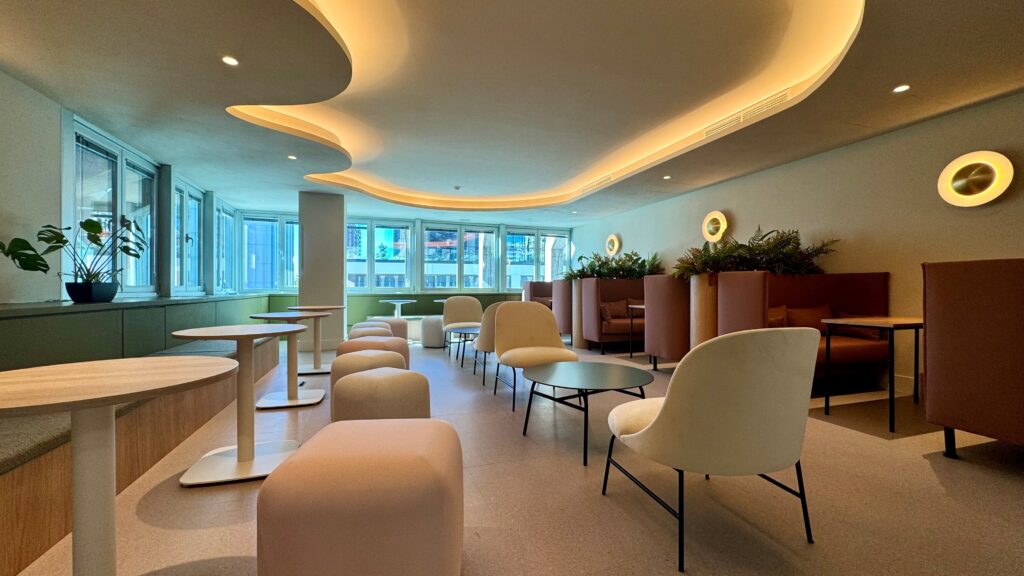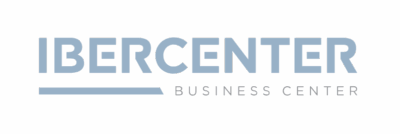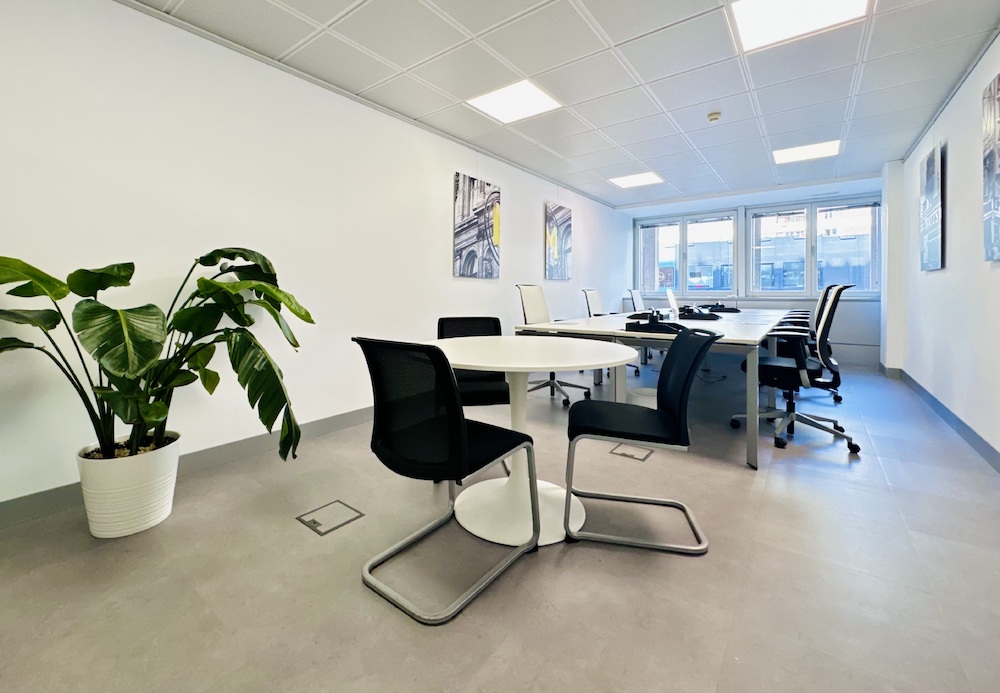Organising one’s schedule efficiently has become an essential skill in an increasingly dynamic and changing world of work, and with it, so has the interest in managing time effectively to make the most of each working day.
In this context, flexible office spaces, such as those offered by Ibercenter, represent a significant competitive advantage. Being able to choose between equipped private offices, meeting rooms, coworking areas and event spaces allows professionals to adapt their working environment according to their daily needs, which contributes to more efficient time management.
In this article we will explore how to use flexible spaces to optimise your work schedule, the benefits of these environments and some tools to help you get the most out of each day.
Flexibility as a Cornerstone for the Organisation of the Agenda
Flexibility is key to modern productivity. Many tasks in a working day require different types of environments: some require total concentration, while others are ideal for team collaboration. Adapting the space according to the activity can influence efficiency and creativity, allowing each task to be performed in the most suitable environment.
Imagine a typical day: in the morning, you need a quiet space for planning and deep concentration tasks; later in the day, you need to connect to a video call or make a presentation for a client; at the end of the day, the opportunity for a networking meeting presents itself. Having a flexible space allows you to carry out all these activities without complications, maintaining a constant pace of work, adapted to each need.
Here is a step-by-step guide to help you organise yourself more effectively:
Step 1: Organise the agenda in time blocks and reserve flexible spaces according to the activity.
An effective technique for organising an agenda is to divide the day into blocks of time. Each block should respond to a specific type of activity, such as meetings, individual concentration tasks, video calls, brainstorming time, among others. Allocating flexible space according to each block facilitates planning and concentration.
Here are some examples:
Blocks for meetings and collaborative activities: Meeting rooms in business centres such as Ibercenter provide the right environment for face-to-face or virtual meetings, guaranteeing privacy and a professional atmosphere. Moreover, having audiovisual equipment, screens and an excellent internet connection is an advantage when working with remote teams or making presentations..
Individual work blocks: For tasks that require focus and concentration, booking a private office allows you to work without distractions. The option of an enclosed space eliminates the interruptions common at home or in a coffee shop, and helps achieve high levels of productivity. At ibercenter we have special booths for these moments.

Blocks for networking and creativity: Common spaces or coworking areas allow for a more social atmosphere, ideal for exchanging ideas and meeting other professionals. These spaces encourage creativity and networking, providing opportunities to find inspiration in casual exchanges.
Useful Tips
- Plan your agenda at the beginning of each week and reserve spaces in advance.
- If you work with a team, block out times for meetings and allocate a specific space to maximise productive time.
- Allocate specific times for deep work in a private environment to avoid distractions and achieve optimal performance.
Step 2: use digital tools to synchronise agenda with flexible spaces
Digital tools can be strategic allies for efficient diary organisation. By integrating the use of calendar, planning and communication tools into everyday life, diary management becomes a more manageable and automatic task. Here are some options:
Google Calendar and Microsoft Outlook: They are calendar tools that allow you to structure each activity of the day. Both platforms allow you to create reminders, share events and set notifications. You can also integrate video conferencing links and sync your schedule with other applications, such as Slack or Zoom, to keep your whole team on top of the day’s activities.
Trello and Asana: These project management platforms are ideal for visualising tasks and their evolution over time. You can divide each task into sub-tasks, set deadlines and assign them to different team members. This organisation can be complemented with a specific column or list for “Space Reservations”, where you visualise when you will need a meeting room or coworking space.
Useful Tips
Take a moment each morning to review and update your schedule in Google Calendar or Outlook and adjust space reservations if necessary.
Set alerts for each block of time in your calendar, so you remember when to change activities or spaces.
Synchronise your calendar with tools such as Trello or Asana to keep a detailed record of your projects and ensure that each activity is associated with an appropriate space.
Step 3: Prioritise tasks and take advantage of flexible spaces to reschedule.
Flexible spaces offer the advantage of being able to adapt to last-minute changes. This is useful when a meeting runs long or an urgent task arises, as you can adjust the agenda and spaces without much hassle. Here are some tips:
Reorganise according to priorities: Classify your tasks into priority levels, so that if something urgent or important comes up, you can reschedule other activities according to the spaces available. This will also help you avoid scheduling meetings at peak concentration times, which can improve your daily performance.
Occasional use spaces for last minute changes: If an unexpected call arises or a meeting needs privacy, a business centre like Ibercenter will allow you to book last minute space, ensuring you have the right environment to deal with any eventuality without interruption.
Useful Tips
Check the agenda mid-week to see if any changes in priorities require a reconfiguration of already booked slots.
Keep time between meetings and concentration tasks to adapt to unforeseen changes without sacrificing the quality of work.
Reserve a space that allows for flexibility in scheduling in case an activity runs longer than planned.
Step 4: Set aside time for concentration and creative activities
Deep work is essential for complex or creative tasks. The private offices of a business centre such as Ibercenter are ideal for setting aside moments of intense concentration. In a private and quiet space, it is possible to avoid interruptions and maximise efficiency.
On the other hand, for creative thinking, a change of environment can be revitalising. Flexible workspaces and coworking spaces, with places like meeting points where you can watch other professionals at work or share ideas, offer the perfect environment for innovation.

Useful Tips
Book a 1-3 hour “deep work” block in a private space where you can disconnect from outside distractions.
Establish an “entry ritual” in each space: organise your desk, remove any unnecessary items and place the materials needed for the task at hand.
At the end of each concentration block, take a few minutes to rest or wander around the coworking area to reactivate your mind before the next activity.
Step 5: Creating networking moments in flexible spaces
A balanced agenda should include spaces to network and create connections. Being in a business centre offers great opportunities for networking, something that is easy to overlook in a busy schedule. Make sure you include spaces in your calendar for networking with other professionals. This time can open doors to new collaborations or clients and refresh your ideas with new perspectives.
A flexible space allows you to set aside time to socialise or participate in networking activities without leaving the work environment, integrating these activities as part of your working day. In addition, at centres such as Ibercenter, training and networking events can be an excellent opportunity to meet other professionals and develop new working relationships.
Useful Tips
Dedicate at least one block per week to networking activities, such as attending events organised in the business centre or simply sharing a coffee in the common area.
Note important contacts and conversations that arise during these times and follow up to strengthen relationships.
Take advantage of these spaces to share ideas and receive feedback from other professionals, which can help to unblock problems and improve your projects.
Conclusion: the importance of flexible office space
Having a flexible office space in a business centre like Ibercenter not only optimises the organisation of the agenda, but also makes it easier to adapt to the challenges of modern work. Being able to change space depending on the activity you carry out allows for more efficient and adaptable time management, improving both productivity and well-being at work.
By implementing these tools and tips, you can structure your day precisely and make the most of every activity. And by incorporating flexible spaces into your daily schedule, you achieve an ideal balance between work and professional development in an environment that suits your needs.






